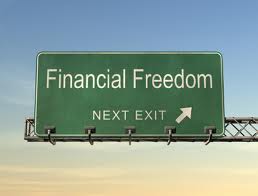 One of my favorite financial references is a small book with a big title; “Your Money or Your Life: Transforming Your Relationship with Money and Achieving Financial Independence.” It was written by Joe Dominguez and Vicki Robin, and is a thought provoking referendum on consumption and personal money management.
One of my favorite financial references is a small book with a big title; “Your Money or Your Life: Transforming Your Relationship with Money and Achieving Financial Independence.” It was written by Joe Dominguez and Vicki Robin, and is a thought provoking referendum on consumption and personal money management.
I teach a lot of financial education classes, and as part of those classes I share resources from Ohio State University Extension. We have excellent money management tools that can help participants organize their finances, set goals, and learn ways to proceed if they are in over their head, financially.
But this book was my first introduction to a philosophy of money management that goes beyond accounting, budgeting, investing, and/or learning how to save money. It looks at how our consumption of material goods in this country has morphed from (1) buying items that help make our lives easier; to (2) items of luxury; to (3) items that are considered “excess.”
I think we can all agree that having a washing machine sure beats standing in a stream pounding your clothes with a rock. However, the old “road map” for how we should spend our money has segued from being need-based to one that’s consumption-based. Somewhere along the line, the American Dream has gotten off-track. We have more bankruptcies, credit card debt, divorce as a result of financial issues, job dissatisfaction, and less time for family than ever before.
All of these issues are prominent because we have failed to make an important connection, which is that our financial lives do not function separately from our personal lives. In a nutshell, your material goods are holding you hostage because you have to spend so much time earning a living that you have no time for really “living.”
Consumption is a jealous mistress. As long as you keep spending, you are going to have to keep working to pay the bills. We have become financially dependent because the original goal of material progress has been superseded by one that makes us more enslaved. When you are buying “stuff,” do you look at your purchases in terms of how much of your life energy it will take to pay for them? Doing so may help you rethink your decision. If you make $10 an hour and want to buy a video game that cost $50, then you will have to give up five hours of your life to own that game.
The purpose of thinking in terms of a new road map is to achieve financial independence, or what I like to call “getting to enough.” When you achieve this plane of thought, you will not constantly be shopping, spending, or consumed with thoughts of consumption. What you have is good enough. This engenders a sense of freedom, because you know the difference between a purchase that is essential and one that is excess.
Have you ever watched a kid on Christmas morning that is given too much? They start out excited about their presents, and the joy level is high. But as more and more gifts are proffered, the child loses interest and gift-opening becomes a chore.
We know on an intellectual level that money can’t buy happiness and the “best things in life are free.” But we believe that we need a bigger house, a newer car, and a closet full of the latest fashions. Then we wonder why we’re not happy, even though we’re surrounded by things we obsessed about until we could purchase them.
“Enough” provides for survival, comfort, and even small luxuries. We have what we need, but not to excess. Our material goods aren’t being housed in basements, attics, or storage facilities while we slave to pay them off. “Enough” is a trusting, fearless place. You enjoy and appreciate what money brings into your life, but you don’t purchase anything that isn’t needed or wanted.
The ideal financial model used to be one of frugality. The Old Testament says “give me neither poverty nor wealth, but only enough.” Famous early Americans Benjamin Franklin, Henry David Thoreau, and Ralph Waldo Emerson all personified material simplicity. We see current role models in Ohio within our Amish and Mennonite communities. Many of our wealthiest citizens are millionaires because they live like normal people, not spending all of their hard-earned income on material possessions. The wealth we enjoy as a nation today is a result of centuries of frugality. Our new habits of spending and consumption have really only come on over the last half-century.
If you’ve been feeling dissatisfied with the direction of your life, both financial and philosophical, I think there is a message in this book for you. Unfortunately, Joe Dominguez died of cancer in 1997, which makes his personal lifestyle choices all the more poignant. His shortened life was meaningful and satisfying, and he was able to go to his deathbed with the realization that he had a rich, full life. Simply put, he got to “enough.”
Donna Green, Family & Consumer Sciences
Ohio State University Extension

